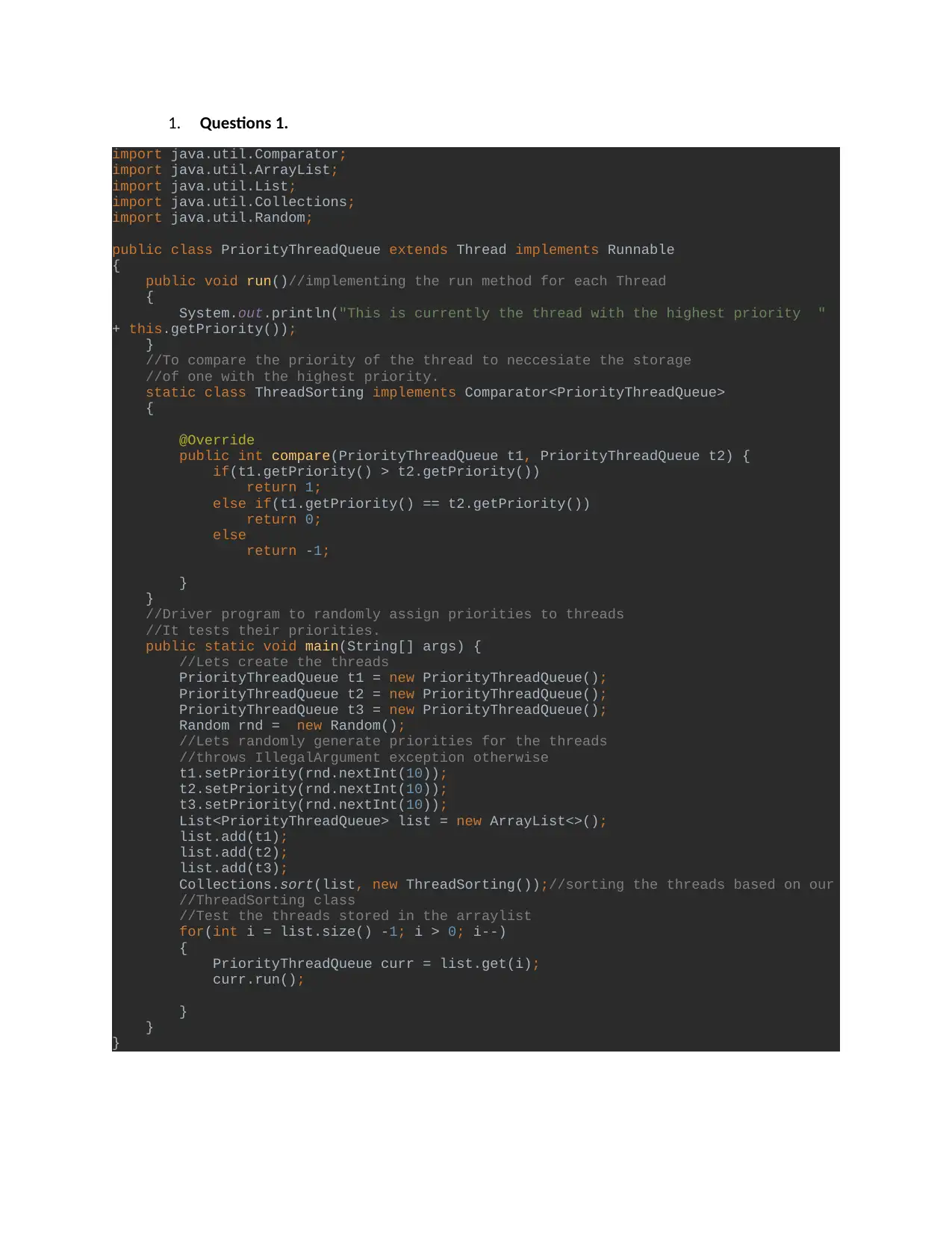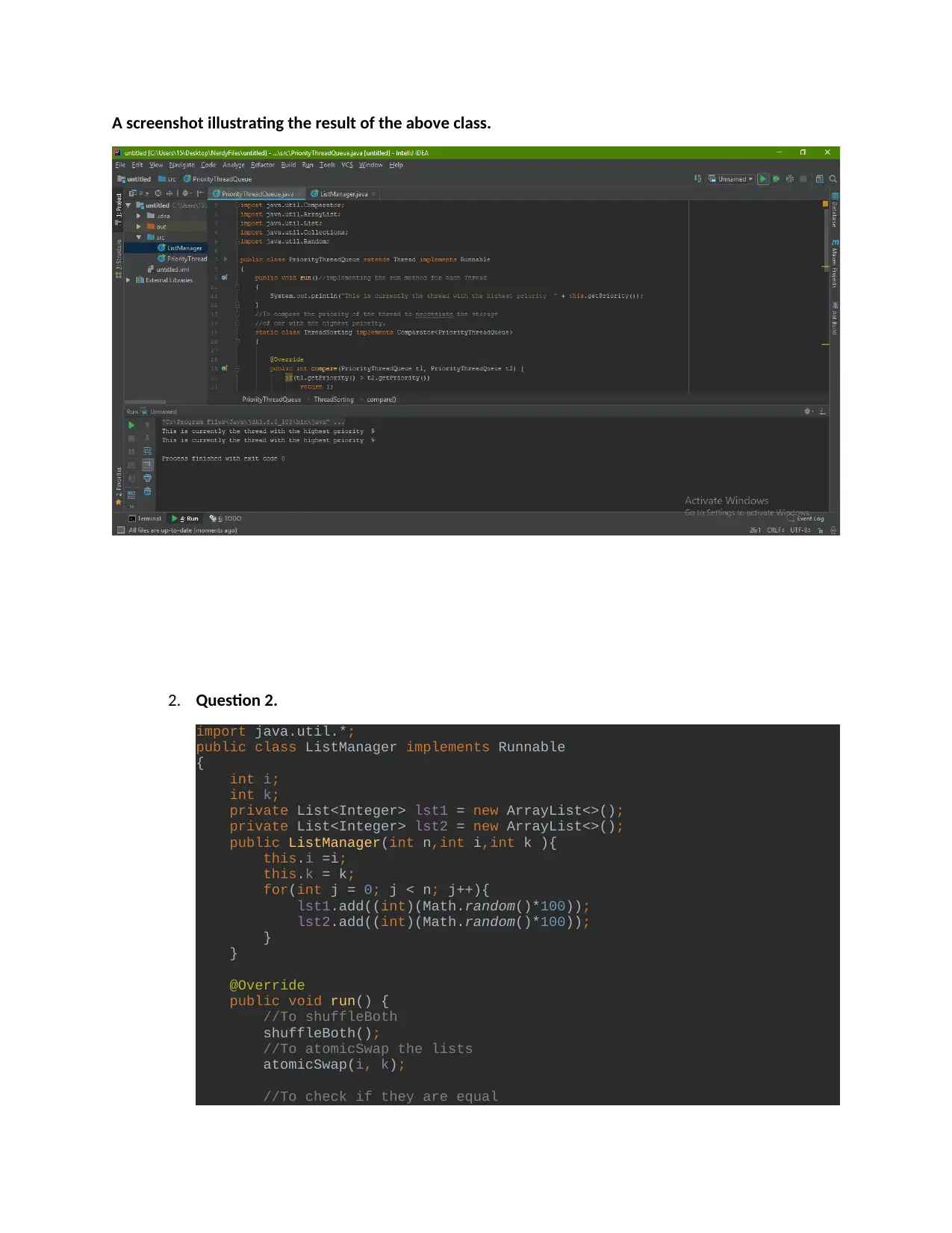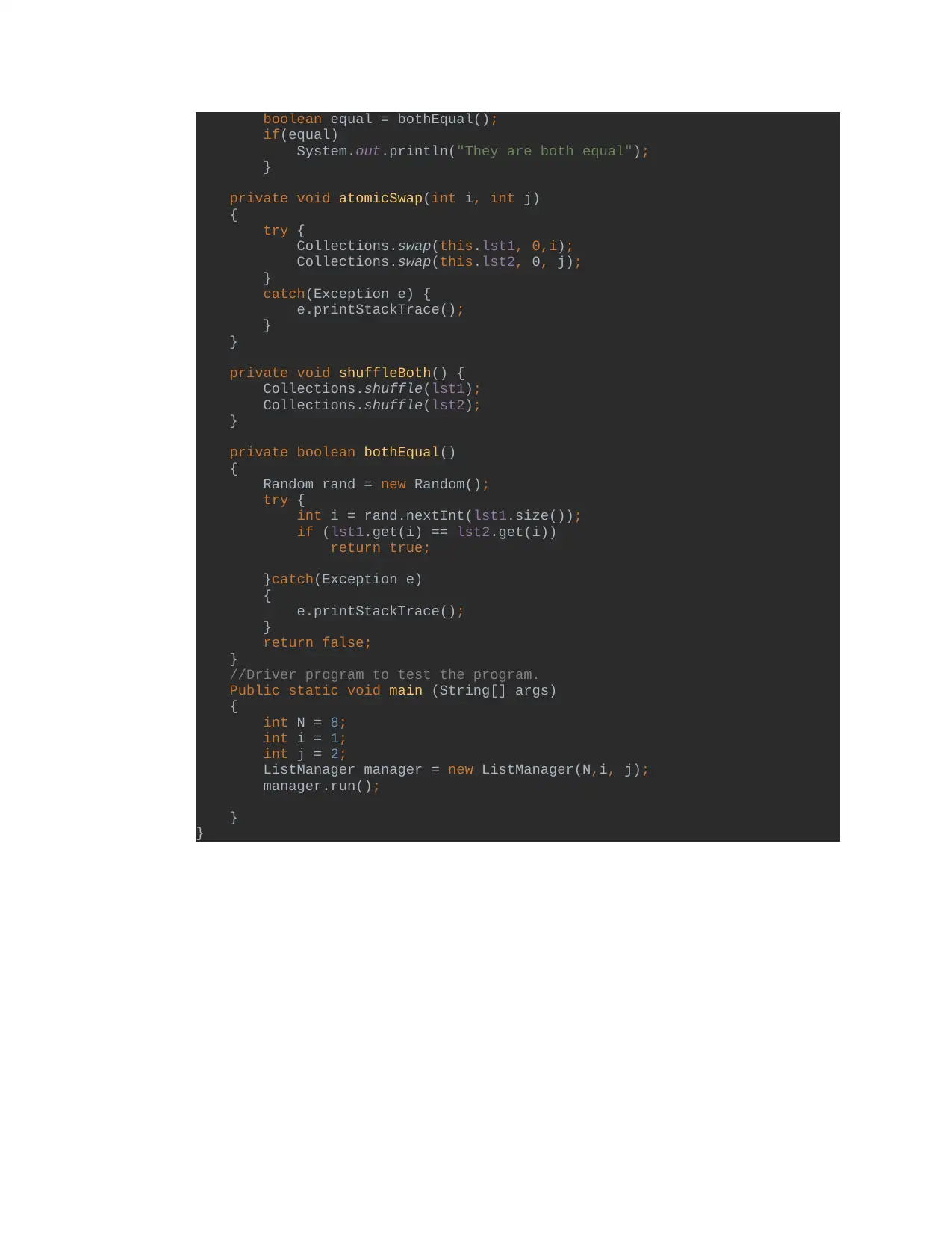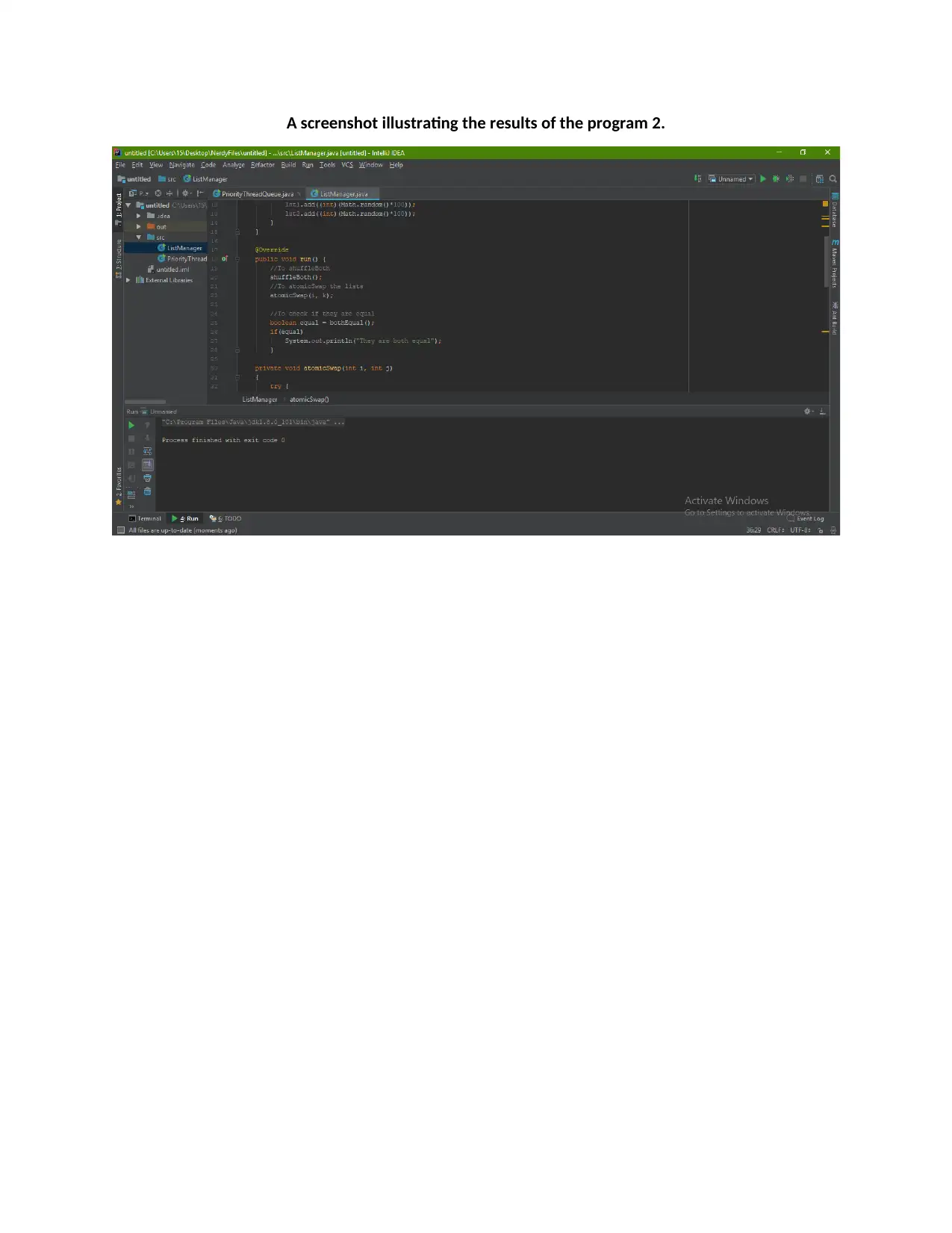Concurrent Programming Assignment Solution - Java Threads and Lists
VerifiedAdded on 2023/03/17
|4
|670
|24
Homework Assignment
AI Summary
This assignment solution addresses two concurrent programming problems in Java. The first problem involves creating a `PriorityThreadQueue` class that manages a queue of threads, ensuring that threads with the highest priority are executed first. The solution includes a `ThreadSorting` comparator to sort threads based on their priority and a `main` method to test the implementation by randomly assigning priorities to threads and demonstrating their execution order. The second problem involves a `ListManager` class that manages two integer lists and handles concurrent access. The solution implements methods for shuffling elements in both lists (`shuffleBoth`), swapping elements atomically (`atomicSwap`), and checking for equality between corresponding elements (`bothEqual`). The `main` method tests the `ListManager` class by creating instances, running its methods, and printing the results, showcasing concurrent list manipulation and thread management.
1 out of 4











![[object Object]](/_next/static/media/star-bottom.7253800d.svg)